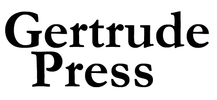Interiors
|
In Niviaq Korneliussen’s Last Night in Nuuk, five Greenlanders slowly untangle their erotic and romantic connections to one another. Translated from the Danish by Anna Halager, Korneliussen’s prose unspools in five rapid-fire first-person sequences, each from the point of view of a different character. Arnaq, Fia, her brother Inuk, Sara, and Sara’s partner, Iviik, all live in the same small community, cycling through denial, self-loathing, desire, and hope.
In the first chapter, Fia is on the verge of breaking up with her boyfriend, whose pet names and relentless care for her are driving her crazy: “He loves me so much that I want something evil to take possession of my body so that I can knife him, four years in prison, rehabilitation, a new life, maybe a more exciting life.” At times, the narrative is reminiscent of The Waves by Virginia Woolf: We feel suspended as a floating eye among this group as they wrestle with insecurity both financial and personal, alcoholism, and being queer in an island community in the North Atlantic where everybody knows everybody else. Korneliussen’s plot is more transparent than Woolf’s—it’s clear we’re following these characters because at least a few of them will end up together—but that doesn’t make it any less compelling. Korneliussen suggests that to be a queer Greenlander is to be outside even the outsider cult... In Last Night in Nuuk, it’s the characters’ internal struggles that form the basis of the plot. The account of Iviik trying to reciprocate intimacies with Sara is especially poignant. Sara wants so badly to make her partner feel good, but Iviik can’t stand being touched, and so cannot feel good in the way Sara wants. Not wanting to hurt Sara’s feelings, Iviik says, “I’ll have to accept being touched. I must ignore my wretchedness.” Eventually both Sara and Iviik realize that Iviik is trans, and it’s his gender dysphoria that fuels his self-loathing. The two eventually reconcile in a tender scene, with Sara changing the pronouns she uses for Iviik toward the end of the book, almost mid- sentence.
|
The characters are not always met with homophobia: Iviik, born a woman, is not bullied on the schoolyard for preferring to ask out another girl, while Sara’s sister is especially supportive of Sara’s relationships. And Inuk’s section, told through his own angry journal entries and letters to others after he’s outed as gay against his will, feels especially central to Korneliussen’s project:
“To be a Greenlander is explained in the following way: You’re a Greenlander when you were born and raised in Greenland. You’re a Greenlander when you help develop your country. You’re a Greenlander when you speak the language. You’re a Greenlander when you take an interest in your culture. You’re a Greenlander when you respect your ancestors. [...] What it really means to be a Greenlander: You’re a Greenlander when you’re an alcoholic. You’re a Greenlander when you beat your partner. You’re a Greenlander when you abuse children. You’re a Greenlander when you were neglected as a child. You’re a Greenlander when you feel self-pity. [...] You’re a Greenlander when you’re queer.” It’s Inuk’s section that hints hardest at the connections between Greenland’s outsiderness as a relative afterthought on the global stage, and the outsider identities of queer people. Korneliussen suggests that to be a queer Greenlander is to be outside even the outsider cult—a position which, given Inuk’s internalized homophobia and self-hatred, can be a difficult one to reconcile. But all of Korneliussen’s characters, even Inuk, find strong support among their friends and family. Last Night in Nuuk is gritty at times, but not so dark as to be afraid of giving its queer cast a happy ending. |

REVIEWED BY CALLUM ANGUS
Callum Angus is a trans and queer writer who has received fellowships from Lambda Literary and Signal Fire Foundation for the Arts, and has presented research at the Annual Meeting of the Association of American Geographers. His work has appeared in the Los Angeles Review of Books magazine, Catapult, The Common, and elsewhere. More of his writing can be found at calangus.com.
Callum Angus is a trans and queer writer who has received fellowships from Lambda Literary and Signal Fire Foundation for the Arts, and has presented research at the Annual Meeting of the Association of American Geographers. His work has appeared in the Los Angeles Review of Books magazine, Catapult, The Common, and elsewhere. More of his writing can be found at calangus.com.
